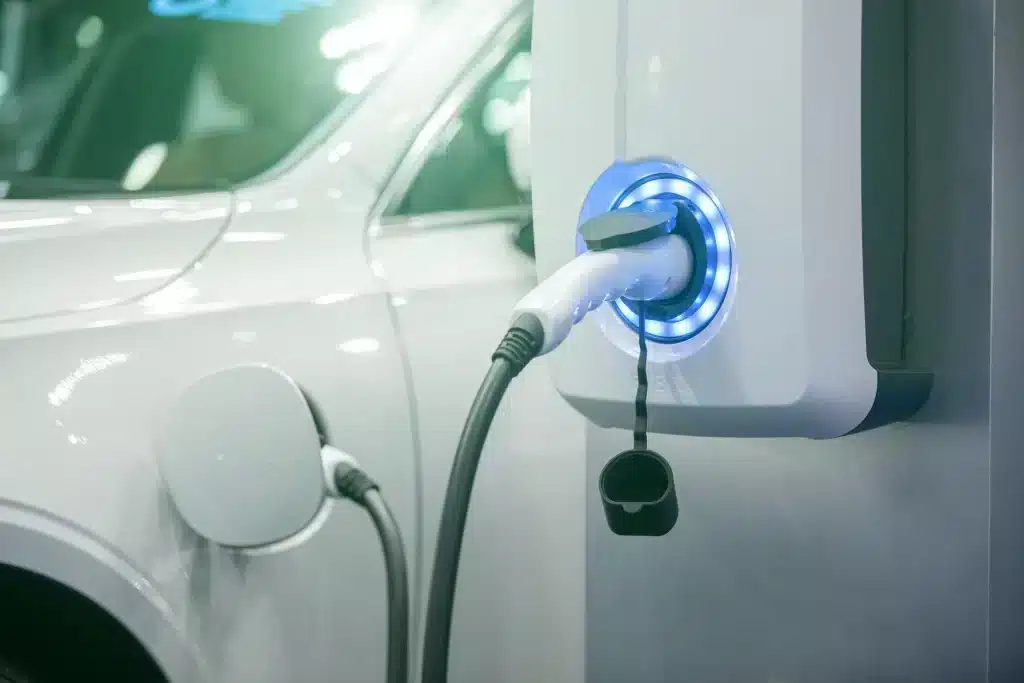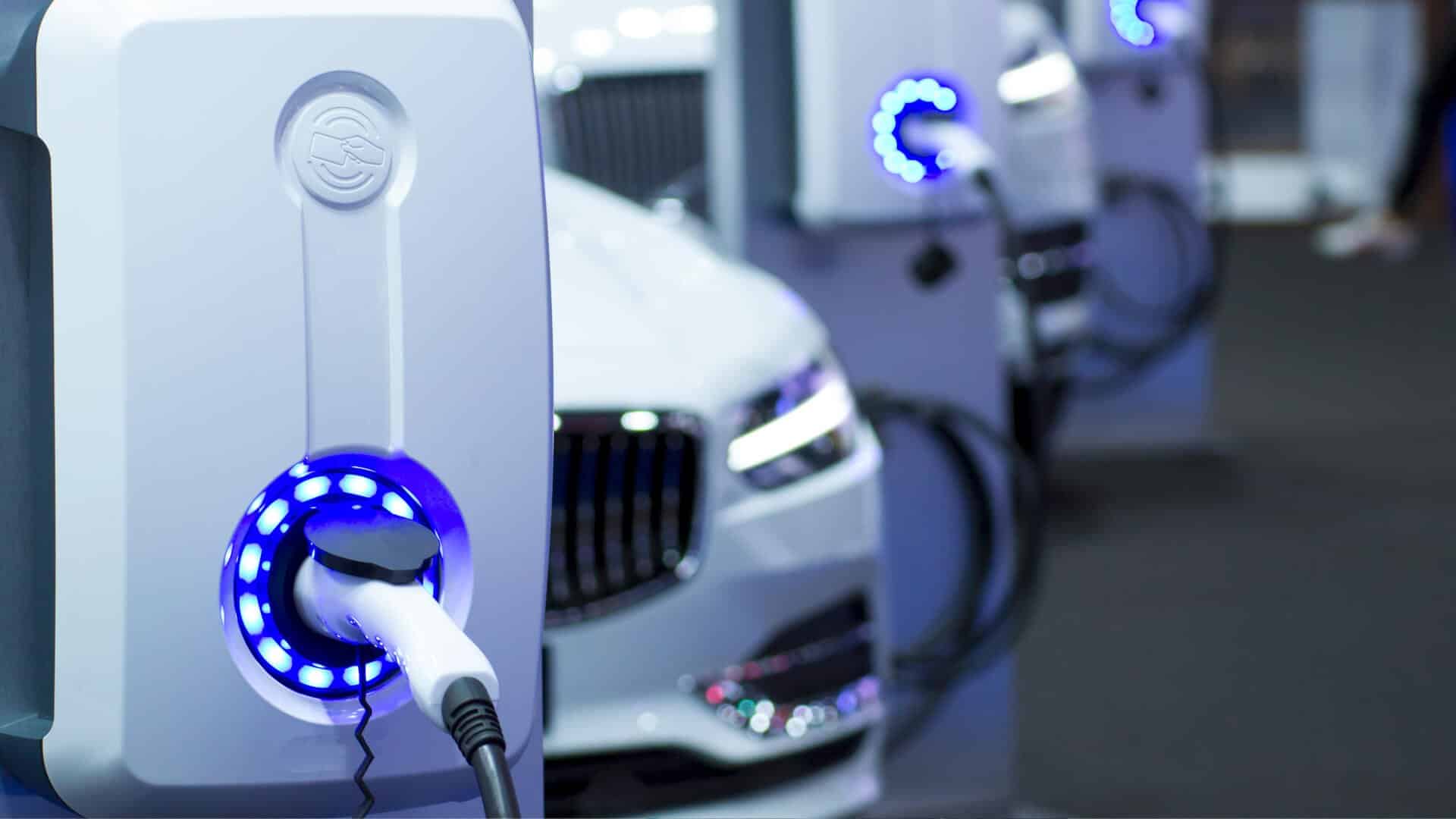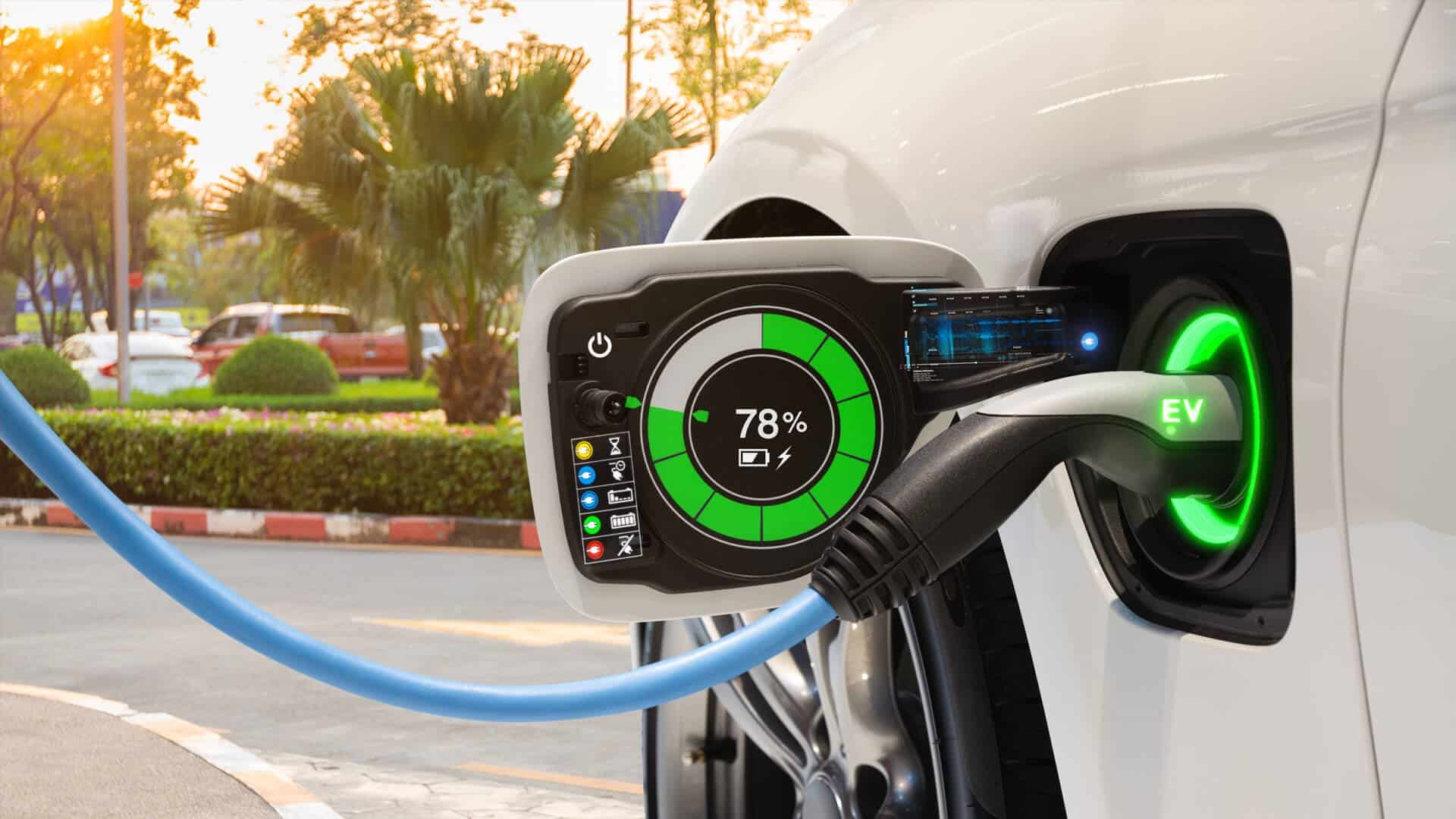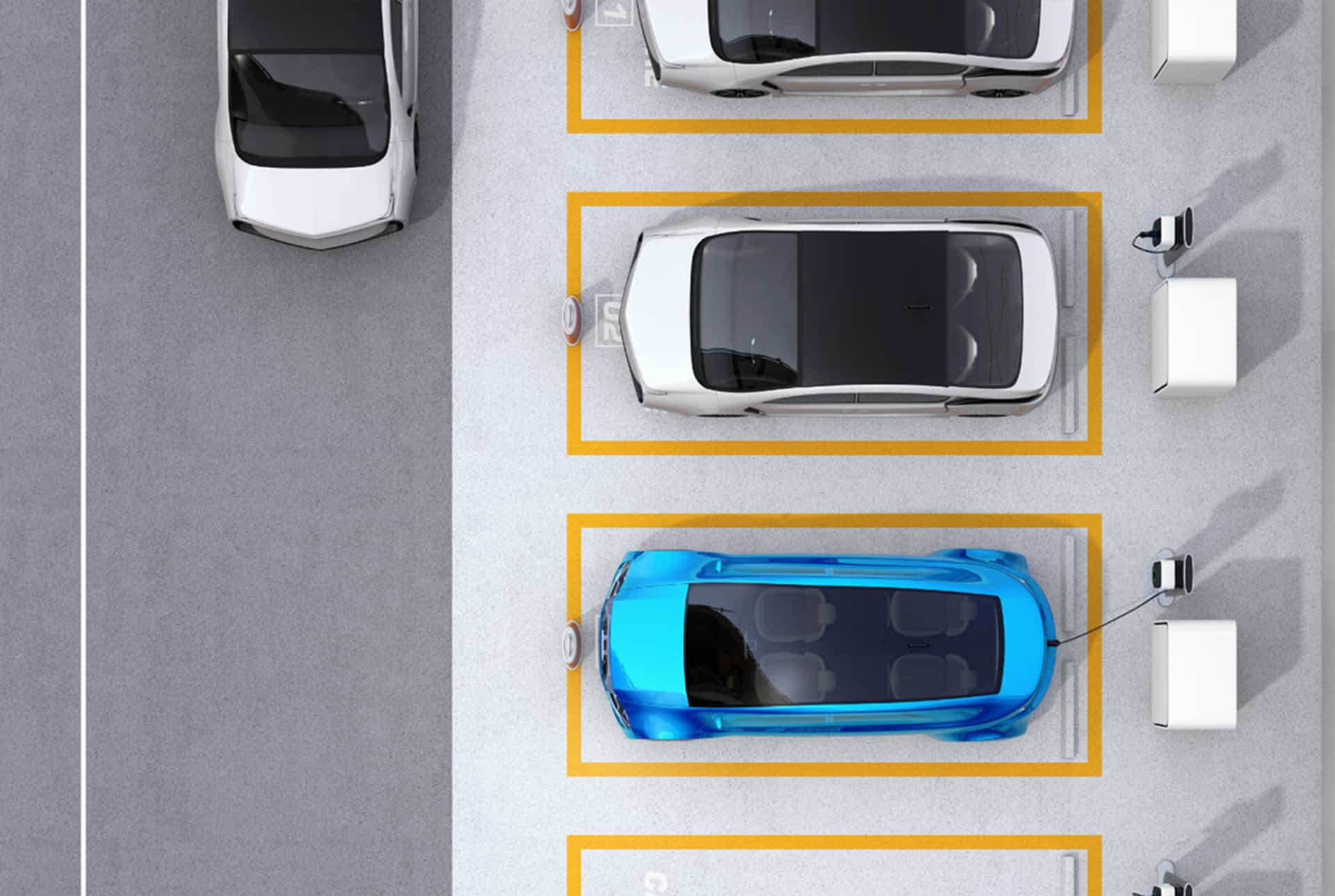Key takeaways:
- Smart charging stations can be used to charge electric vehicles at times when the electricity demand is lower, helping homes save money.
- IoT SIM Cards offer an inexpensive but resilient solution for keeping smart EV chargers connected.
- Wi-Fi struggles to provide constant service to smart EV charging stations, while ethernet-connected charge points have a very disruptive installation process.
What is an EV Charger?
As the world gradually steps towards a greener future, more electric vehicle (EV) charging points have begun appearing at service stations, car parks and private driveways.
And with the UK government banning the sale of new petrol and diesel cars from 2030, you may be using an electric vehicle yourself sooner than you may think. But how do you charge an electric vehicle?
An EV charger pulls an electrical current from an outlet or the grid it’s hardwired to and delivers electricity to an electric vehicle – akin to charging your phone from an outlet in the wall.
However, in 2022, the UK government announced new regulations stating that charge points intended for the private charging of vehicles must provide smart functionality, such as the ability to send and receive information and provide a display or interactive user interface.
These regulations apply to any person or business selling, offering, hiring, lending, leasing, or advertising a charge point for sale.
The introduction of these new regulations has paved the way for a necessary recent innovation – the smart functionality connected EV charging point. This type of charger connects to a network, which gives you greater control over your charging schedule.
How Does a Smart Electric Car Charging Station Work?
Smart charging is a convenient and safe method of charging your EV without it costing a small fortune.
Smart charging stations typically charge vehicles at times when the demand for electricity is lower, helping homes save money and reducing the demand for electricity from the National Grid.
To use a smart charging station, the user will first send charging preferences to the smart charger, such as the desired charge level, a time they would like the charge completed, or a minimum charge level.
These preferences will be sent to a centralised cloud-based management platform by a network, like 3G/4G/5G, ethernet or Wi-Fi. For these reasons, IoT (Internet of Things) SIM Cards lie at the heart of keeping smart electric car charging stations connected – but more on that later on.
Before installing a smart charger, you must first make sure that your home supply and network are compatible with the charger.
Second, check to see if the charger comes with a subscription or data plan; if not, you may need to arrange or purchase one separately, which can lead to unnecessary complications.
The Role of IoT in Electric Vehicle Charging
The world is moving towards IoT connectivity and for good reason. With everything connected to the internet, life becomes a lot easier and more efficient. This is especially true when it comes to charging your electric vehicle.
An IoT-connected home EV charger can do a lot for you. For one, it can help you keep track of your charging habits and schedule. With all the data stored in the cloud, you can easily check how much power you’ve consumed, when you last charged your car, and how long it took to charge. This information can be really helpful in optimising your charging schedule and saving money on your electric bill.
Another great benefit of IoT connectivity is remote monitoring. With an IoT-connected charger, you can monitor your car’s charging status even when you’re inside or away from home. With cloud services and apps, you can be fed alarms or alerts if there are problems with the device, the charging process or the status of the charger. This way, you’ll never have to worry about whether or not your car is properly charged.
IoT connectivity can therefore provide you with visibility, control and peace of mind. Ensuring your vehicle will be charged and ready to go at any moment or when you most need it.
There are a few different types of connectivity that smart EV chargers can use: IoT SIM card, Ethernet, and Wi-Fi.
So, what’s the difference? And which one is better for your needs?
Multi-Network IoT SIM Card Connectivity
SIM card connectivity is an important and increasingly common type of connectivity for smart EV chargers.
To connect regulatory-compliant devices, all you need is an IoT SIM card from an IoT connectivity service provider. This is generally inexpensive given the low quantities of data these types of devices transmit and use.
The only complexity to using IoT SIM card connectivity is that the subscription may need to be renewed once the EV Charging Unit installation and service package runs out or after a defined time period after installation.
It is important to check the duration and to plan and ensure your service life for the device meets your needs. This is likely best provided by the end-user completing a service renewal with the provider or some form of service exchange.
EV Domestic Charging companies are, however, obviously looking into ways to provide the best ongoing service from installation, to ensure a seamless service is provided and how best to retain customers in the long term.
A Multi-Network IoT SIM card is needed for these types of EV Charging connections as IoT devices require separate commercial agreements with Mobile Network Operators (MNOs) than standard consumer SIM contracts. This is so that they can be provisioned based on their likely signalling and data profile when connected to the network, which is different to consumer phone uses. It also means they can take advantage of access to multi-network connectivity.
Having multi-network connectivity will allow the smart EV charger to remain connected if there is a problem on one local or core MNO infrastructure network, as it will be able to connect to an alternative network.
Ethernet Connectivity
Ethernet connectivity is another option for smart EV chargers. However, ethernet cabling can be more difficult to install than an IoT mobile SIM card, particularly in private properties where there are fewer complimentary groundworks needed than in street furniture or public access locations.
Put simply, public-use EV charge-points need planning and works to install the services and the connections required underground to the unit, whereas a home user will be looking for minimal disruption to their property or driveway.
Additionally, the installer or the consumer may not be comfortable with the wires, networking equipment and effort/costs needed to bring the Ethernet cables through the property to an unspecified router.
Given the potential for local or transitory complications, even if you can install ethernet effectively, it is probably still advisable to use SIM card connectivity as a backup to ensure constant connectivity.
Wi-Fi Connectivity
Wi-Fi is another connectivity option for smart EV chargers. While Wi-Fi is commonly available in homes and businesses, similarly to Ethernet, it is the lack of reliable control that is of most concern.
The problem with Wi-Fi connectivity is that it can be difficult to provide constant service. Home users may even make interventions on their home network which can have knock-on effects on connected IoT devices that rely on using the same network.
For example, end users may want to change their passwords for their home network but might then struggle to update the settings for IoT devices such as EV Charging Points. IoT devices can be more complex to update locally without the right information or systems.
As a rule, IoT devices work best when they are set up and fitted to work seamlessly by expert technicians or installers, signed off and then managed via integrated central systems or user apps.
Wi-Fi can also be surprisingly unreliable when monitored for mission-critical real-time applications.
Additionally, Wi-Fi range can also be insufficient for applications where the router is fitted inside the building. This is mainly because the EV charge point is expected to be located outside the building in an area where Wi-Fi is seldom or never used.
If this provides poor coverage, then the EV charging Point may never connect or do so intermittently. Even the impact of moving the router to a new location within the property may render the EV charge Point unable to connect to its vital systems and services.
Where Can I Find a Smart EV Charging Station?
As mentioned earlier, there are multiple places where you could find a smart electric vehicle charging station, including:
Home Charging
Perhaps the most conventional place to find a smart EV charging station, dedicated home chargers usually deliver around 7kW in power.
Charging at home gives users options to charge their vehicle faster through a dedicated EV charger, rather than a domestic three-pin socket.
How Much Does it Cost to Install a Smart EV Charger at Home?
Installing a home smart EV charging point can cost around £800, but there are ways to reduce the initial installation cost.
Through the EV Chargepoint Grant, the Office for Zero Emission Vehicles (OZEV) offers UK households up to 75% of funding towards the installation of a smart EV charging station.
Public Charging
Not only can smart charging stations be found in homes, but they can also be found in car parks, service stations, supermarkets and on the side of the road. In fact, there are over 37,850 charging points in the UK.
To find the closest public charging point near you, we recommend using Zap-Map.
Workplace Charging
Ideal for commuters, workplace charging points are becoming more common as employers take steps to lower their carbon footprint.
Better yet, workplaces could benefit from a reduced installation cost through the Workplace Charging Scheme.
Electric Vehicle Charging FAQs
How Much Does it Cost to Charge an Electric Car?
The cost of charging an EV can vary depending on where you are charging it and what charger is being used.
Based on costs calculated at 28p/kWh, fully charging an electric vehicle at home can cost from £6 to £15. Public locations can be free, however, some will charge a fee. Meanwhile, charging an EV in a workplace is typically free.
Understanding the varied charging landscape and its associated costs is crucial for individuals to make informed decisions and fully grasp the economic advantages of transitioning to electric vehicles.
It is therefore important for individuals to consider a number of factors when evaluating the overall cost of charging an electric vehicle.
How Long Does it Take to Charge an Electric Vehicle?
The time it takes for an electric vehicle to charge can vary depending on the size of the battery, the speed of the charging point, and how much the battery needs to charge.
Typically, a standard electric car with a 60kWh battery will take just under 8 hours to fully charge with a 7kW charging point. However, charging time can vary from just under 30 minutes to well over 12 hours.
Are All EVs Compatible With the Same Kind of Charger?
Generally, EV chargers are universal but different chargers will offer varying charging speeds and power. EVs are usually fitted with a Type 2 connector, while some models will also be fitted with alternative connectors such as CCS2 or CCS2.
The best way to discover which type of charger your EV needs is to look at the user manual that came with your model or contact the manufacturer if you have questions.
How Long Does an Electric Vehicle’s Battery Last?
An electric car battery will last between 15 to 20 years, covering somewhere between 100,000 and 200,000 miles in the process.
But if you’re wondering how long a charge lasts, a 40 kWh battery can hold enough power to run for four days.
Unlock IoT’s Potential with Caburn Telecom
Thank you for reading our post on how electric car charging stations work.
As you can see, IoT connectivity can offer crucial benefits for home EV chargers and are the best way to meet UK regulations.
If you’re thinking about investing in a home charger or offering an EV Charging Service, make sure to choose one that offers IoT connectivity to comply with UK regulations.
If you require more information on the best connectivity solution for your EV charging points, please contact us today.



